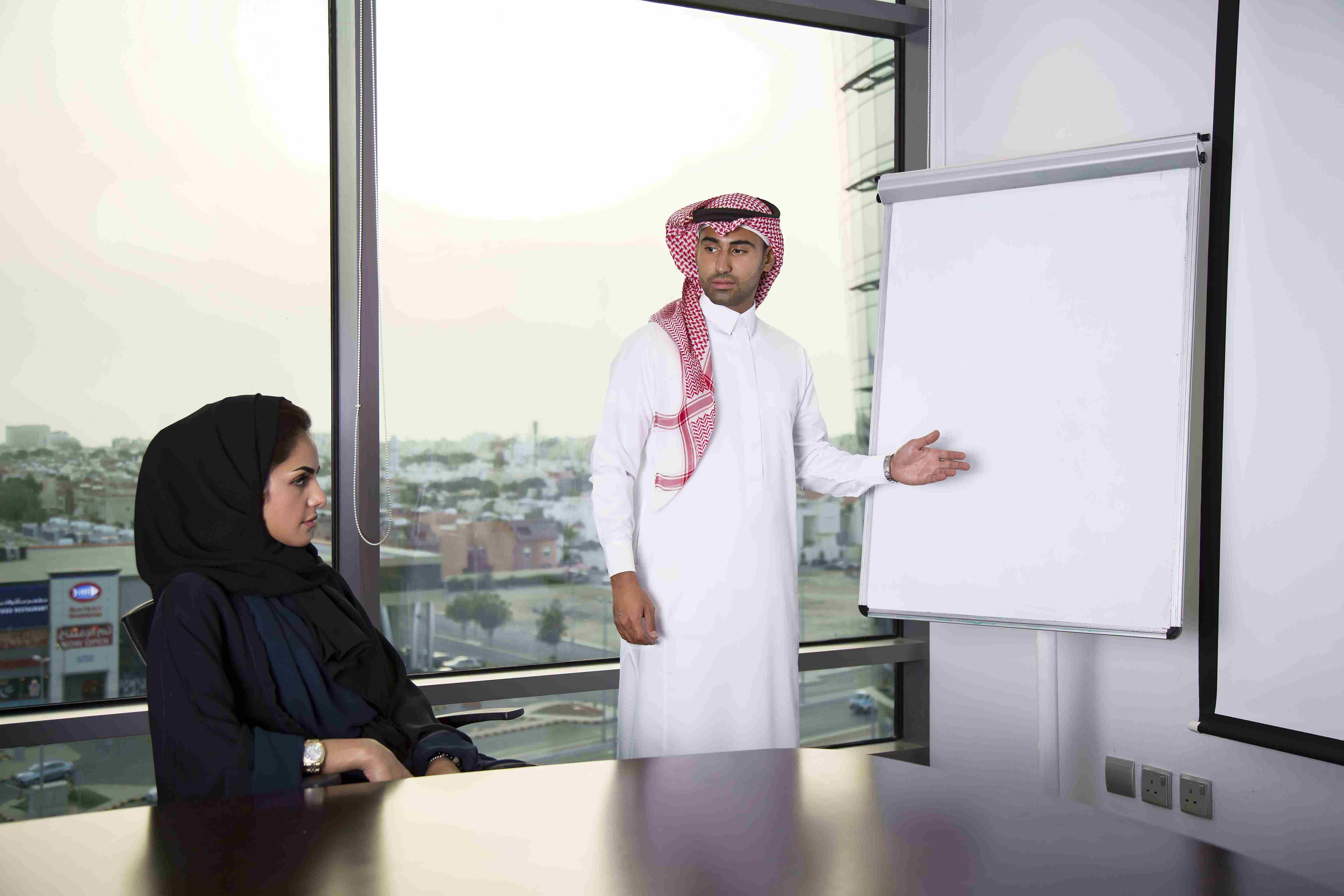In today’s rapidly evolving business environment, leadership development has moved from being a supportive initiative to becoming a strategic cornerstone of organizational success. Nowhere is this transformation more evident than in the Kingdom of Saudi Arabia (KSA), where Vision 2030 is reshaping industries, institutions, and workforce dynamics.
While our earlier article, “Leadership Development Programs in Saudi Arabia: Building Future-Ready Leaders,” highlighted the broad national significance of cultivating leadership, and “Executive Leadership Development Programs: Strategies for Private Sector Growth in KSA” emphasized the role of senior executives, this article takes a step further. It demonstrates why leadership development across all levels—not only executives—is the foundation for sustainable organizational growth, competitiveness, and resilience in Saudi Arabia.

The Evolving Business Landscape in KSA
Saudi Arabia is experiencing:
1. Economic Diversification – Beyond oil, sectors like renewable energy, IT, tourism, and healthcare are flourishing.
2. Digital Transformation – Businesses are increasingly integrating AI, automation, and data analytics into operations.
3. Cultural Transformation – Vision 2030 emphasizes youth empowerment and women’s participation in leadership.
4. Global Competition – Saudi companies must compete with multinational corporations while maintaining local authenticity.
In such a climate, strong leadership development programs (LDPs) ensure that leaders can navigate complexity, seize opportunities, and sustain growth.
Defining Leadership Development in the Saudi Context
Leadership development refers to structured programs, strategies, and practices that build skills, competencies, and mindsets for effective leadership. In Saudi Arabia, it goes beyond traditional training—it is about preparing leaders to:
• Align organizational goals with Vision 2030.
• Lead multicultural and multi-generational teams.
• Drive innovation while respecting cultural values.
• Ensure long-term sustainability through effective governance.
This broader definition sets Saudi leadership development apart from generic global models.
Why Leadership Development Is the Cornerstone of Organizational Success
Building Future-Ready Leaders
Organizations that prioritize leadership development are not just preparing for today—they are building the leadership pipeline of tomorrow. As discussed in “Leadership Development Programs in Saudi Arabia: Building Future-Ready Leaders,” programs ensure that leaders can respond effectively to both current challenges and future uncertainties.
Driving Organizational Performance
Research consistently shows that companies with strong leadership pipelines achieve higher productivity, profitability, and innovation. Leadership development fosters employee engagement, which directly translates into organizational performance.
Enabling Strategic Agility
In volatile markets, agility is key. Through leadership development, Saudi organizations gain the ability to pivot quickly, adopt new technologies, and capitalize on emerging opportunities.
Enhancing Talent Retention
Employees prefer organizations with visible leadership pathways. By offering leadership development programs, companies reduce turnover and retain top talent.
Strengthening Governance & Ethics
Well-trained leaders ensure compliance, ethical decision-making, and transparency—critical factors for attracting foreign investment and gaining stakeholder trust.
The Saudi Organizational Context: Public vs. Private Sector
Public Sector
Government institutions are investing heavily in leadership programs to align bureaucracies with Vision 2030 goals.
Private Sector
As we explored in “Executive Leadership Development Programs: Strategies for Private Sector Growth in KSA,” the private sector requires agile leaders capable of competing globally while driving local transformation.
Family-Owned Enterprises
Family businesses, which dominate Saudi Arabia’s economy, use leadership development to ensure smooth succession planning and generational continuity.
Key Elements of Leadership Development Programs
1. Structured Learning Modules – Covering strategic thinking, decision-making, and governance.
2. Executive Coaching & Mentorship – Personalized development for senior leaders.
3. Experiential Learning – Action projects, simulations, and international exchange.
4. Cross-Cultural Competence – Navigating global partnerships while honoring Saudi values.
5. Digital Leadership Training – Preparing leaders for AI-driven, data-centric economies.

Case Studies: Leadership Development in Action
Case Study A: Company X – Building Innovation Leaders
A technology start-up (Company X) implemented a leadership program focused on innovation and agility. Within two years, the company achieved a 45% growth in new product development.
Case Study B: Organization Y – Succession in Family Business
Organization Y designed a leadership pipeline for second-generation family members. The program balanced traditional business values with global leadership practices, ensuring smooth generational transition.
Case Study C: Institution Z – Healthcare Expansion
Institution Z introduced leadership training focusing on cross-border collaboration. This allowed the company to establish operations in GCC and European markets.
The Challenges of Leadership Development in Saudi Arabia
1. Cultural Resistance – Some organizations still rely on traditional hierarchical models.
2. ROI Measurement – Proving the tangible impact of leadership programs can be complex.
3. SME Constraints – Small and medium enterprises may lack resources to implement comprehensive programs.
4. Balancing Localization and Globalization – Adopting global best practices while maintaining local identity.
Vision 2030 and Leadership Development
Vision 2030 is a catalyst for embedding leadership development into organizational DNA. It mandates:
• Increasing women’s participation in leadership roles.
• Developing youth leadership for the digital economy.
• Fostering entrepreneurship and private sector innovation.
Thus, leadership development is not just an HR initiative—it is a national priority.
Linking Leadership Development to Organizational Success
Leadership development is not a cost—it is an investment with long-term dividends. Organizations that embed leadership programs enjoy:
• Higher levels of strategic innovation.
• Greater workforce engagement.
• Stronger market competitiveness.
• Enhanced resilience in times of crisis.
This mirrors the findings from “Executive Leadership Development Programs: Strategies for Private Sector Growth in KSA” where executive training was shown to directly contribute to organizational expansion and sustainability.
The Future of Leadership Development in Saudi Arabia
The next wave of leadership programs will incorporate:
• AI and Predictive Analytics in decision-making.
• Hybrid Learning Platforms combining digital and face-to-face learning.
• Greater Focus on Diversity and Inclusion, particularly women in leadership.
• Cross-Border Leadership Training to prepare Saudi leaders for international markets.
Frequently Asked Questions (FAQs)
Q1: Why is leadership development especially important in Saudi Arabia?
Because Vision 2030 demands transformation, organizations require leaders who can drive innovation, manage change, and compete globally.
Q2: How do leadership development programs differ from traditional training?
Unlike training, which focuses on specific skills, leadership development is holistic—covering mindset, strategic thinking, and emotional intelligence.
Q3: Can SMEs benefit from leadership development programs?
Yes, tailored programs can help SMEs grow sustainably, manage succession, and compete with larger firms.
Q4: What role does Vision 2030 play in leadership development?
Vision 2030 positions leadership development as a national strategy, ensuring both public and private organizations prepare leaders for future demands.
Q5: How are executive leadership programs different from general ones?
As highlighted in our second article, executive programs emphasize strategic foresight, corporate governance, and large-scale transformation, whereas general programs target foundational leadership skills.
Leadership development is more than an organizational practice—it is the cornerstone of Saudi Arabia’s economic and social transformation. Whether through building future-ready leaders, driving performance, or ensuring succession planning, leadership development programs empower Saudi organizations to thrive in a competitive global environment.
As highlighted in our previous articles, the continuum of leadership development—from general programs to executive strategies—forms the backbone of private sector growth. In Saudi Arabia, leadership is not only about managing the present—it is about shaping the future.










